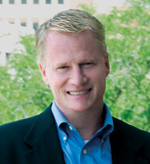Column: Highs, Lows of Winter Olympics
Why in the world are the Winter Olympics in Sochi, one of Russia’s warmest places? Chalk it up to corruption – both the Russians’, which we’ve come to expect, and the International Olympic Committee’s, which … we’ve also come to expect. The IOC hasn’t just shown a willingness to be bought, but an insistence. If you don’t pay ‘em, you ain’t getting the Olympics.
That’s how you get a Winter Olympic skating rink built in the shade of palm trees. The warm weather is funny, unless you spent your entire life training for these Olympics, and there’s no snow. Then it’s just heartbreaking.
Sochi will also be remembered for the bronze water you can’t drink, and the ritual police beatings of a punk music group called Pussy Riot – which is the kind of name you come up with when you want to call yourself something shocking, but you don’t know English very well.
But this is important, for two reasons. First, it allows journalists to say Pussy Riot on the air. I don’t think my boss will let me say it next week. And second, it restores our sense of moral superiority. This way, we can still hate the Russians – then beat them in hockey.
And that’s exactly what the Americans did, thanks to a guy named T.J. Oshie. [Full Story]






